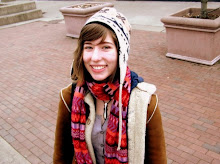14 November

The old man with the pipe jutting out of his mouth sat in his wheelchair like king of the world. He was a large man with short legs. In each hand he held a cane, and rolled down the sidewalk in his wheelchair as though he were rowing a boat.
He rowed, rowed straight down Avenue B every afternoon. The guys at the corner deli were hosing down the sidewalk in front of their flowers as the old man came rumbling through, they laughed at him and shouted at him in Spanish. The old man grunted something back in French.
They knew him well. He lived in Alphabet City and rowed down Avenue B all the time, sometimes three or four times a day, up and down. Sometimes he would stop to repack his pipe and then he would keep rolling, his enormous glasses glimmering in the sunlight, looking like a walrus, bloated, content, uninhibited.
He stopped by at a Polish diner every morning, ordered the same thing, bacon and eggs, and ginger ale. The old man didn’t drink coffee. The waitresses all knew him. He’d shout out in his raspy voice and yell, “Olga! Where’s Olga?”
Olga was a middle-aged waitress there, and thought his voice sounded like an older version of Tom Waits’—as though it had been drenched in a vat of bourbon, hung up to dry in an old warehouse, then thrown into the middle of a street, run over several times, and spoiled in the sun. He smelled like it, too.
“You ever gonna bring me my ginger ale?” he yelled.
As Olga came over with his ginger ale and placed his canes in the corner, she noticed he had missed several patches in his morning shave.
“Where has your daughter been?” Olga demanded.
“I heard she has a wooden leg!” he shouted hoarsely, then laughed, deep and gurgling in the back of his throat.
“You didn’t shave all the way today,” Olga said. “Where has your daughter been?”
“We gotta find out where the money is,” the old man rasped. “Olga! play my theme song.” He was referring to the jukebox, in which he asked her to take his quarter and play “Trampled Rose.”
“What about your son?” Olga went on.
“Well John John, he’s long gone. He gone to Indiana and never come home.”
“What about your daughter?”
“Just get me to New Orleans where I can play my accordion forever Olga! I’ll take you with me.”
“I’ll be back with your bacon and eggs,” she sighed.
She went back to the kitchen to put in the order, stopped in front of a mirror above a little hand sink in the back, checked her graying red hair pulled back in a messy ponytail, her rusty old hoop earrings from 20 years ago, her drawn-in eyebrows. Today the bags under her eyes looked more prominent than ever, her apron string felt a little tighter, and her nail polish was beginning to crack.
But the old man hadn’t shaved properly today, and this worried her. For ten years he’d been coming to the diner every morning, ordered bacon and eggs and ginger ale, yelled at her to bring his “chow”, and even though he was always alone, and always in his wheelchair, he had never missed a shave. He had always taken care to pack his pipe, he had always made sure he had shaved and combed back his thin gray hair to the back of his head, he had always asked her to pat his cheek and see how clean his shave was. Checking the old man’s clean shave had been her morning staple, a part of her routine after her coffee and cigarette, after leaning on the empty counter at 7am and asking the cashier, “What’s the news?”
When she came back out with his food, the old man was waiting with a napkin tucked into his shirt. He shouted at her to get him more ginger ale.
She grabbed his empty cup. She said, “What happened to your clean shave this morning?”
He waved his heavy finger-nail-gritty hands. “Let me eat!”
She repeated her question more sternly: “Has your daughter been in town …?”
The old man was crouched over the table, eating, bits of scrambled egg tumbling down his chin and onto the napkin on his shirt.
A waitress said in the kitchen, “It’s been eight years exactly since his wife died.”
“So that’s it,” Olga said.
“Oh yeah. Eight years today. Oh, he kept her on his arm like jewelry when she was younger. He kept her on a leash. And now she’s dead, forever dead. See if he can trample over her now.”
Olga watched the old man. “What happened to his daughter? To his son?”
“He tortured ‘em all for years, taking care of him. He tortured ‘em all through hell and back. They got up and left him, finally. Serves him right.”
Olga came back and brought him his ginger ale. He had finished eating. He paid with a five-dollar bill, then gruffly waved Olga out of the way with his big hands, reached for his canes, and turned to row out of the diner. He didn’t turn around when he shouted in the doorway, facing the wind at the street in front of him, the sea of people he was about to launch into, “Olga, make sure they play my theme song and … Send me off to bed forevermore!”


0 Comments:
Post a Comment
Subscribe to Post Comments [Atom]
<< Home